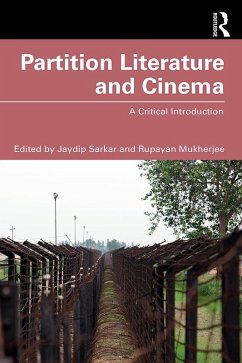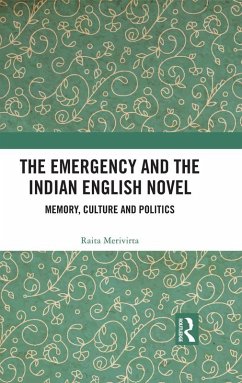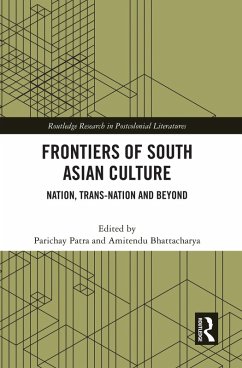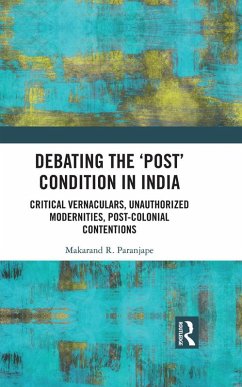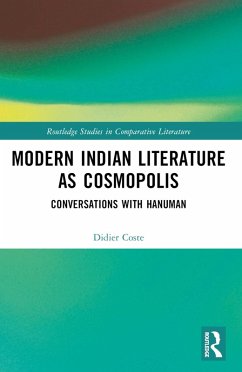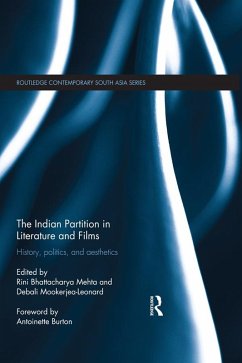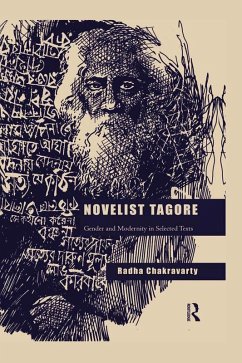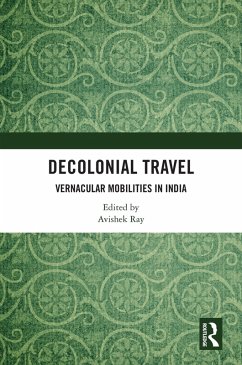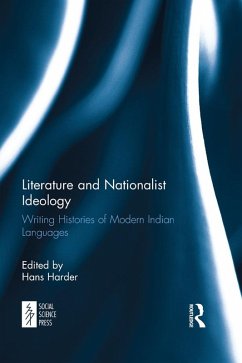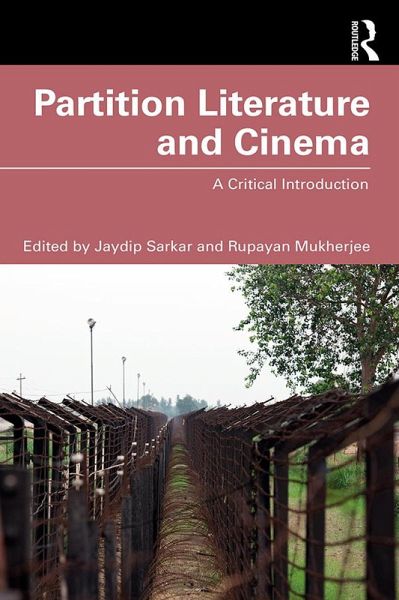
Partition Literature and Cinema (eBook, PDF)
A Critical Introduction
Redaktion: Sarkar, Jaydip; Mukherjee, Rupayan

PAYBACK Punkte
20 °P sammeln!
This book studies literary and cinematic representations of the Partition of India. It discusses Partition as not just an immediate historical catastrophe but as a lingering cultural presence and consequently a potent trope in literary and visual representations. The volume features essays on key texts - written and visual - including Train to Pakistan, "Toba Tek Singh", Basti, Garm Hava, Pinjar, among others.Partition Literature and Cinema will be indispensable introductory reading for students and researchers of modern Indian history, Partition studies, literature, film studies, media and cu...
This book studies literary and cinematic representations of the Partition of India. It discusses Partition as not just an immediate historical catastrophe but as a lingering cultural presence and consequently a potent trope in literary and visual representations. The volume features essays on key texts - written and visual - including Train to Pakistan, "Toba Tek Singh", Basti, Garm Hava, Pinjar, among others.
Partition Literature and Cinema will be indispensable introductory reading for students and researchers of modern Indian history, Partition studies, literature, film studies, media and cultural studies, popular culture and performance, postcolonial studies, and South Asian studies. It will also be of interest to enthusiasts of Indian cinematic history.
Partition Literature and Cinema will be indispensable introductory reading for students and researchers of modern Indian history, Partition studies, literature, film studies, media and cultural studies, popular culture and performance, postcolonial studies, and South Asian studies. It will also be of interest to enthusiasts of Indian cinematic history.
Dieser Download kann aus rechtlichen Gründen nur mit Rechnungsadresse in A, B, BG, CY, CZ, D, DK, EW, E, FIN, F, GR, HR, H, IRL, I, LT, L, LR, M, NL, PL, P, R, S, SLO, SK ausgeliefert werden.




